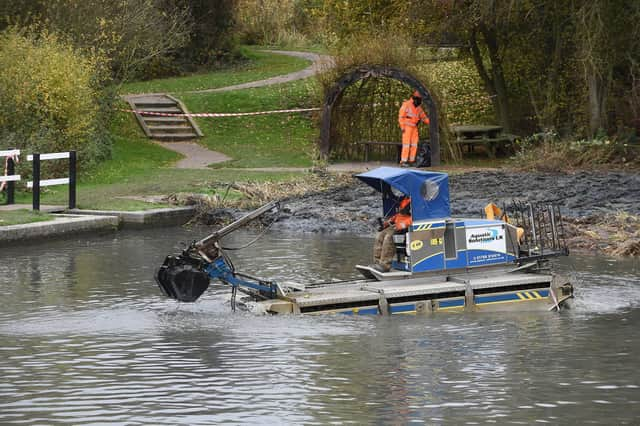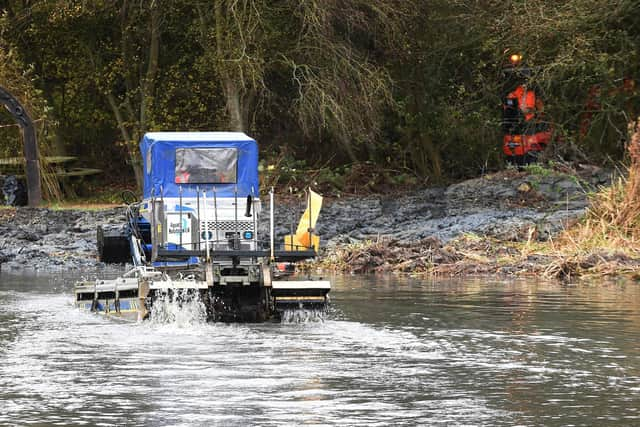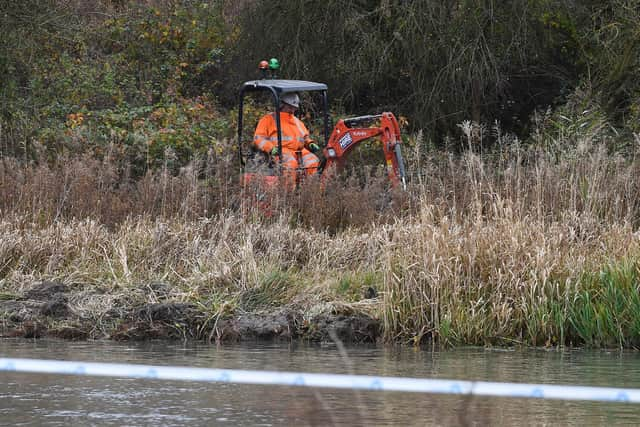Amphibious machine brought in to dredge sideponds at Foxton Locks


A high-tech operation is going ahead to dredge the sideponds at Harborough’s world-famous Foxton Locks.
A specialist piece of kit called a Truxor amphibious machine has been cleaning out the ponds at the iconic attraction near Market Harborough.
Advertisement
Hide AdAdvertisement
Hide AdThey have to be cleared of reeds and silt every now and again to make sure that they have sufficient capacity.


“The sideponds are important as they are used to store and balance water for the operation of the flight of locks.
“Specialist fisheries contractors have already had to wade into the ponds to carefully relocate them to another part of the canal, well away from where the works were due to take place,” said the Canal & River Trust, which runs the Grand Union Canal.
“The contractors used special rods to emit a low-level electric pulse into the water which temporarily stuns the fish enabling them to be safely netted.
Advertisement
Hide AdAdvertisement
Hide Ad“Previously this has been done by draining the sideponds and driving a mini excavator into them.


“This time around we’ve used an amphibious Truxor machine – and that means that we don’t have to drain the sideponds.
“The Truxor machine firstly cleared away the reeds that were growing into the sideponds,” said the Trust.
“The cut reeds have been placed beside the sideponds so any invertebrates or other wildlife can get back into the water.
Advertisement
Hide AdAdvertisement
Hide Ad“The machine was then fitted with a special pump which acted as a giant vacuum, sucking tonnes of mud and silt from the bottom of each sidepond.
“This mud and silt was pumped through a pipe over the Harborough Arm of the canal, to the north of the locks, where it will be left to dry before being spread evenly on the ground there.”
Up to 5,000 boats pass through Foxton Locks every year – and about 300,000 visitors pour in to admire and make the most of this unique canal landmark.
Famed all over the world for its 19th century engineering genius, Foxton Locks was built between 1814 and 1900.
You can find out more about the work of the Canal & River Trust by visiting www.canalrivertrust.org.uk